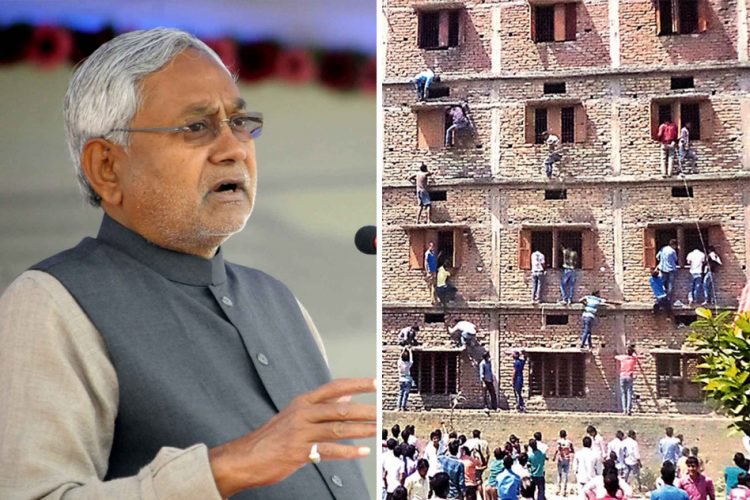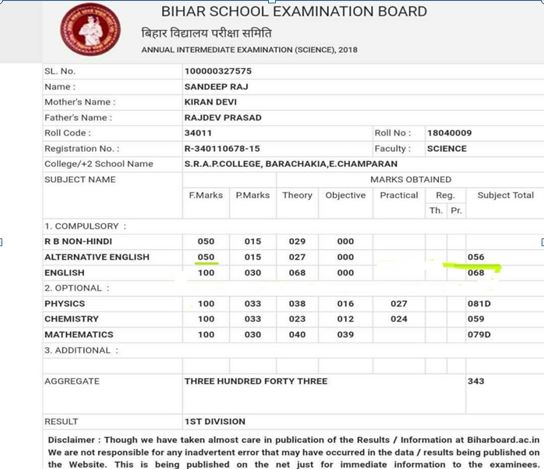Bihar as a state keeps an important place historically, culturally and politically. A land which flourished long back in the 5th century, with Nalanda as a centre for excellence, a place where the brilliant mind like Aryabhatta pursued his mathematical and astronomical interests. Even Abul Fazal-i-Allami author of Ain-i-Akbari and secretary to emperor Akbar came to Bihar in 1574 and had showered praise considering Patna as a flourishing centre for the paper.
An Unfair History:
The glorifying past, today ails in terms of education whose literacy rate is among the lowest in India with just 63.8% according to 2011 census as compared to 74% for the entire country. This lagging character has definitely to do with its politics but it has deep roots in its history which have contributed to state’s backwardness. Bihar’s underdevelopment is rooted in its colonial history. The British Raj had different tax collection mechanisms in India. In western and southern India, under the ryotwari and Mahalwari systems, they conducted regular surveys to set the annual tax that peasants would pay them directly. But in eastern India, including Bihar, they worked through local zamindars who would collect taxes, maintain law and order, and pay the British a fixed tax each year. The colonial rule was more oppressive here than in most parts of India. The neglect of education by the colonial administration and feudal force of local zamindars went hand in hand as main interest was the collection of tax keeping aside the economic, social development through literacy. Unfortunately, this pattern of the rule was in practice after Independence but through an elected government. It was a consequential choice that has shaped perception people Bihari population which they experience till today.
Failing Policies On Education:
Bihar after 2005 keeps a good image among masses when it comes to assess the state on law and order, road connectivity and electricity supply. But its performance on basic issues crucial for the poor – like health, education and land redistribution – remains extraordinarily weak. Recent incidents in Bihar’s education sphere took my attention which indicates hollowness of both society and politics. But it is more political than social. Bihar’s education system comprising both higher secondary and primary education is in total mess and peril among all the states. Few incidents related to higher secondary education are as follows-
- In a fresh incident earlier this month, over 42,000 answer scripts of candidates who wrote the Class X Matriculation examinations conducted by the Bihar School Examination Board (BSEB) went missing from the strong-room of a school in Gopalganj where they had been kept after evaluation. They were kept in 213 bags, all of them disappeared. The BSEB chariman, Anand Kishore goes ahead to clarify, results would not be affected but is this acceptable in an education system. Couple of days later, few mark sheets were recovered from a scrap dealer in Gopalganj which were sold to him for a sum of Rs, 8500. Yesterday it was reported that over 5600 practical copies of class 10th & 12th went missing from Rajendra Prasad High School in Gopalganj district.
- In another incident, students in the state capital, Patna demanded to recheck of exam paper in return they were mercilessly beaten by police officials. Faulty marks were given in mark sheets. A student from Hajipur claimed, in a paper with 35 as full mark obtained 38. Picture below says, Sandeep Raj got 56 marks out of 50.
(Pic Source: Twitter) - Last year students protested against the government on the declaration of poor results where students cleared the Joint Entrance Exam but failed in 12th intermediate examinations. In 2016, intermediate exam toppers Ruby Rai and Ganesh Kumar, failed to answer basic questions asked by reporters who interviewed them. 21 people were sent to jail.
- In 2015, 1400 teachers resigned from service as they possessed fake educational degrees. But the question here is- How did Bihar government allow these fake degree holders to enter teaching service? What happened to the scrutiny process? This issue was not identified by Bihar government rather a PIL filed by activist Ranjit Pandit others alleged that in 3.5 lakh primary teachers many had a fake degree. This depicts the clueless character of the education system of Bihar under Nitish Kumar.
137 students of Rahmani Program of Excellence shine at the JEE Mains Exam
The condition of primary education is much more disappointing. According to IndiaSpend report, Bihar has-
- 3% fewer teachers than it needs in elementary school (grades I to VIII), and is short of 278,602 teachers, according to Right to Education (RTE) Act criteria, which stipulates a pupil-teacher ratio (PTR)–the number of pupils per teacher–of 30:1 in primary schools (grades I to V) and 35:1 in upper primary school (grades VI to VIII).
- Despite literacy rise, 62% of primary students do not complete secondary education.
- Not enough classrooms, teachers.
- Lowest per student expenditure on elementary education.
- Inadequate expenditure on the infrastructure of schools.
Even the Unified District Information System For Education (U-DISE) data 2015-16 spells a worrisome situation. 90.94% of schools are in rural Bihar whereas 9.06% are in urban areas. The library facility in primary school was just 58.86%. As a ray of hope, Bihar’s overall literacy in last decade rose by 17% compared to a national increase of 9%. But the challenge remains to maintain this momentum.
After liquor and Gutkha, Bihar govt now plans to ban khaini
Responsibility Of Society:
Apart from political loopholes and bad decision making of state government, society and its people need to introspect on education. Bihar has a shameful record of infamous mass cheating since several years down the line. The conscience of parents needs a reality check, making them understand the importance of education and its role in lives of their children. The attitude of attaining degree by hook or crook is harming society at whole. Future of these students will be a question whenever they get into a rational competition.
As rightly put by veteran journalist and The Roving editor of The Telegraph, Sankarshan Thakur in a conversation- “Bihar is no more a knowledge society. We have stopped investing in knowledge rather we are investing in getting good results by manipulations. I don’t mind if someone feels bad but the trend of mass cheating, keeping a check on invigilators of examination by parents is utterly shameful and a derogatory sign in today’s time.”
Beyond religion: Muslim cooperative society helps transform lives of Hindus, others
The transition from a knowledge society to muscle-based society is a dangerous turn in context of Bihar which has a respectable, glorious past of intelligentsia. The educational progress of children depends on the environment at their homes on the one hand and on the schooling facilities available to them on the other. Here both society and political class have had a role to play and need to be blamed but optimistically together we need to come up with correct solutions of righteousness and dignity so that we can take out Bihar from its grappling character of weak, dimensionless and ethics less education system.
Disclaimer: The opinions expressed in this article are the personal opinions of the author. The facts and opinions appearing in the article do not reflect the views of NEWSD and NEWSD does not assume any responsibility or liability for the same.



















